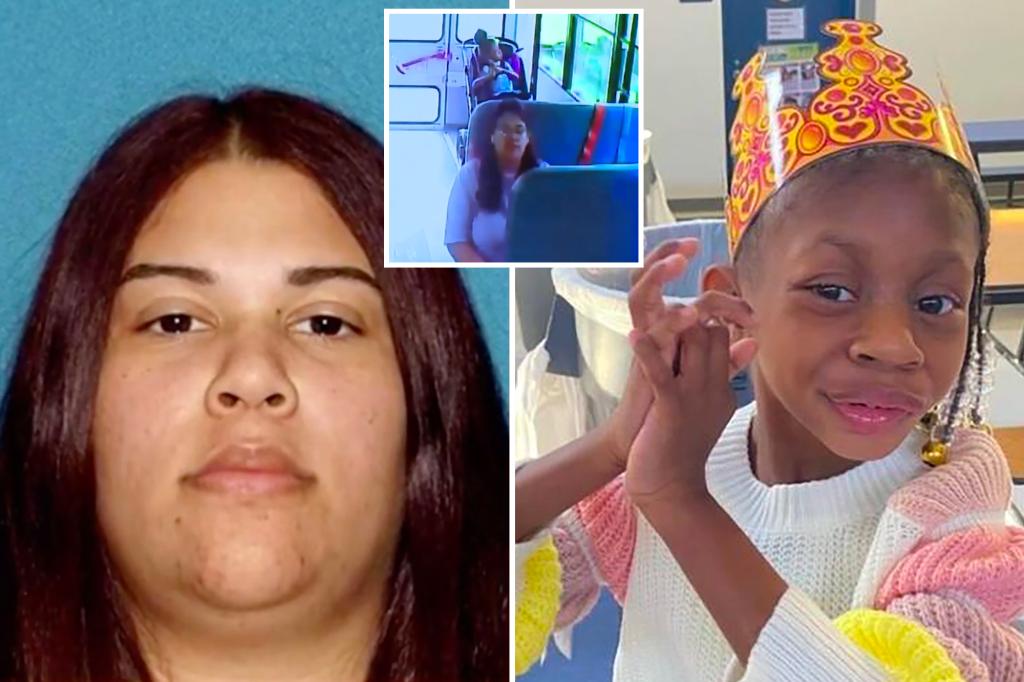The trial of Amanda Davila, a New Jersey school bus aide charged in the death of six-year-old Fajr Atiya Williams, concluded with a split verdict, generating mixed reactions and leaving the victim’s family grappling with a sense of injustice. Davila was found not guilty of the most serious charges, aggravated manslaughter and reckless manslaughter, but was convicted of endangering the welfare of a child. The case stemmed from a tragic incident in July 2023 when Williams, a special-needs child with Emanuel syndrome, was strangled by her own wheelchair harness while en route to Claremont Elementary School in Somerville.
The prosecution argued that Davila’s negligence directly contributed to the child’s death. They presented evidence suggesting Davila was engrossed in her cell phone with earbuds in for nearly 20 minutes, oblivious to Williams’ struggle as the harness tightened around her neck after the bus traversed some bumps. The prosecution contended that Davila’s inattention prevented her from intervening and potentially saving the child’s life. They painted a picture of a helpless, non-verbal child left to suffocate while the responsible adult disregarded her duty of care. This portrayal underscored the gravity of the charges and the devastating consequences of Davila’s alleged inaction.
However, the defense presented a different narrative, shifting the focus of responsibility to Williams’ family. Davila’s attorney, Michael Policastro, argued that the child was not properly secured in her wheelchair, specifically claiming the bottom harness was not fastened. He asserted that this oversight, rather than Davila’s inattention, was the primary cause of the tragedy. Policastro emphasized the parents’ responsibility for ensuring their child’s safety and implied that their alleged negligence in securing the harness created the conditions for the fatal accident. This defense strategy aimed to cast doubt on Davila’s culpability and redirect blame towards the grieving family.
The jury’s split verdict reflects the complexities and ambiguities of the case. While they acquitted Davila of the manslaughter charges, signifying they were not convinced beyond a reasonable doubt of her direct responsibility for Williams’ death, the conviction of endangering the welfare of a child indicates they found her actions negligent and contributed to the hazardous situation. This verdict acknowledges a degree of culpability on Davila’s part without assigning her full responsibility for the tragic outcome. It suggests the jury may have been swayed by the defense’s arguments regarding the improperly fastened harness, considering it a mitigating factor in their decision.
The aftermath of the verdict has been marked by raw emotion and a search for accountability. Williams’ mother, Najmah Nash, expressed her profound grief and disappointment, emphasizing that the legal proceedings have not brought closure or justice for the loss of her daughter. She vehemently refuted the defense’s claims about improper harnessing, asserting that her daughter was securely fastened in the wheelchair. Nash’s impassioned response highlights the deep wounds inflicted by this tragedy and the ongoing struggle to reconcile the legal outcome with the devastating personal loss. Her words underscore the limitations of the legal system in addressing the emotional complexities of such a case.
Davila, taking the stand in her own defense, admitted to making a mistake but argued against the severity of the potential sentence. She maintained that while she bears some responsibility, others should also be held accountable. This statement reflects a partial acceptance of culpability while simultaneously attempting to diffuse the focus solely on her actions. Davila’s testimony underscores the intricate web of responsibility in this case, hinting at potentially shared blame between the bus aide, the family, and perhaps even the school system for the adequacy of its safety protocols. The impending sentencing in March will determine the final legal consequences of Davila’s actions, though it is unlikely to fully resolve the emotional wounds and lingering questions surrounding this tragic event.
The case of Amanda Davila and Fajr Atiya Williams serves as a stark reminder of the vulnerabilities of special-needs children and the critical importance of diligent care and oversight. It raises questions about the adequacy of safety protocols on school buses, the responsibilities of caregivers and transportation providers, and the challenges of ensuring the well-being of children with complex needs. The trial and its outcome have left a community grappling with grief, unanswered questions, and a renewed focus on preventing similar tragedies in the future. The legal process, while providing a framework for accountability, ultimately cannot fully address the profound emotional impact of such a loss. The enduring legacy of this case will likely be a heightened awareness of the needs of special-needs children and a continued effort to improve safety measures and prevent future tragedies.

